Starting an e-commerce store is not complete without choosing the right e-commerce platform. Shopify is seemingly the first name one thinks of due to its simplicity, a wide range of features, and scalability. It’s not a single choice, though, and based on your requirements, other variants might suit your business needs much better. In this blog, we will talk about Shopify, the pros and cons of Shopify, and some popular alternatives to Shopify to refer to while choosing wisely.
Table of Contents
ToggleWhy Shopify?
It is among the world’s most popular eCommerce platforms. Its user-friendliness, flexibility, and broad app ecosystem create a true powerhouse for both the beginning and seasoned entrepreneur to start and grow an online business.
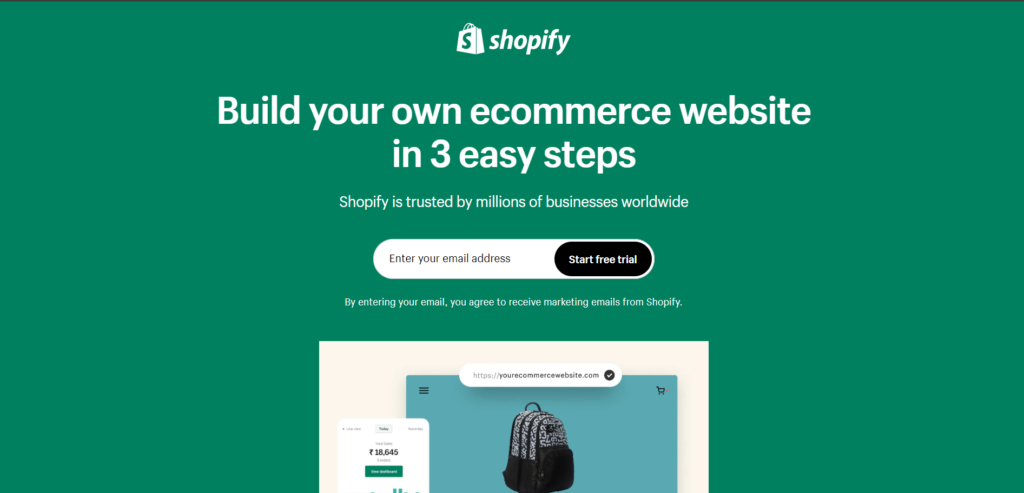
Pros of Shopify:
• User-friendly Interface: Shopify offers an extremely easy and intuitive interface. Thus, using drag-and-drop capability, it actually makes for perfect user-friendliness without the need to be technically savvy for setting up a store.
• Built-in Payment Gateway: Shopify Payments is natively integrated into the store; therefore, third-party payment processors are not required.
• Wide Range of App Offers: This platform, through an available app, can be configured to respond to almost any eCommerce requirement.
• Scalability: Shopify is built to grow with your business. It comes in prepared advanced plans which may be suitable for a small startup but also large enterprises when required.
• Excellent Customer Support: Shopify provides customer support at all times through chat, email, or phone.
Cons of Shopify:
• Transaction Fee: Small businesses may be charged a little extra with every transaction, something that can be counted as a drawback if not routed through Shopify Payments.
• Cost: Monthly plans may get too costly to afford, especially once you add premium apps to it.
• Limited Customization: Customization is limited without knowledge of coding: although apps can customize Shopify very heavily, the design can be customized only to a great extent without coding.
So far, you’ve been introduced to Shopify; it’s time to get your feet wet and take a glance at some of the alternatives of Shopify and compare.
1. BigCommerce
It is one of Shopify’s biggest competitors. Its features are very robust and generally suited for medium to large-sized businesses which seek fast growth.
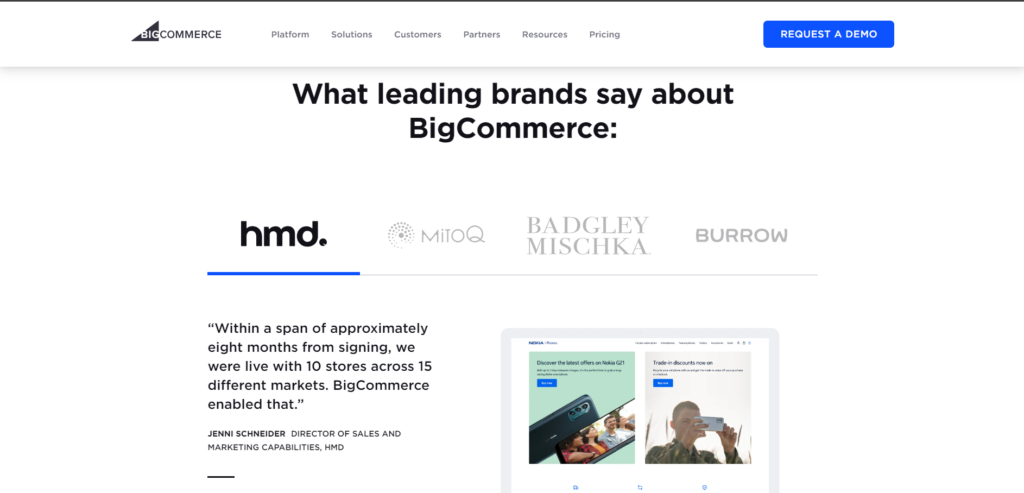
Pros of BigCommerce:
• No transaction fees: No transaction fees are charged by BigCommerce , unlike Shopify, on any transaction processed through any of the available payment gateways.
• Built-in features: More built-in features eliminate dependence on third-party apps.
• Customization: Advanced capabilities for personalization give it more design flexibility; this is especially good for users comfortable with technology.
Cons of BigCommerce
• Learning Curve: With its truly advanced functionality, it’s more challenging for a complete beginner to grasp the platform.
• Annual Sales Limit: Each plan has a selling limit, so if your business keeps growing, you have to upgrade to an upper plan which will cost more.
2. WooCommerce
WooCommerce is one of the plugins that transforms your WordPress site into an ultimate eCommerce store. This plugin offers you many customization choices, but at least you need some experience with WordPress.
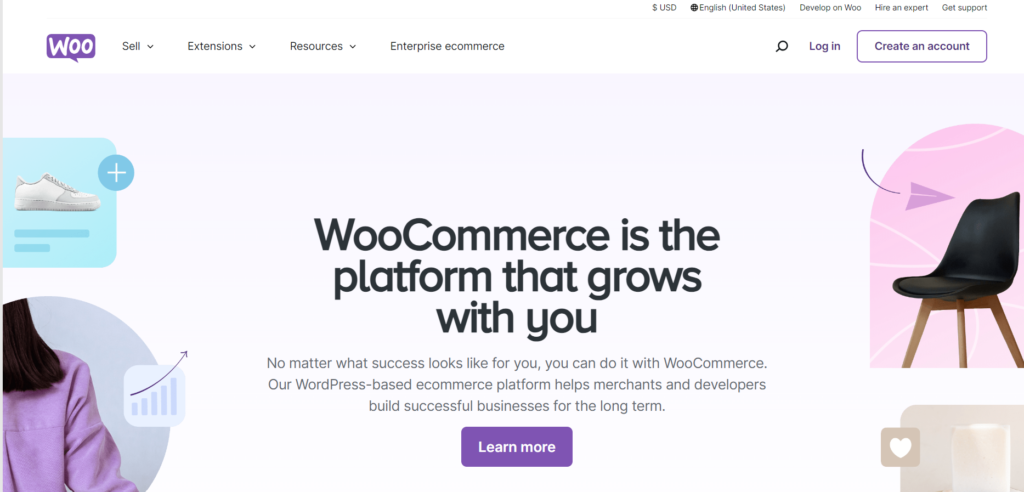
Pros for WooCommerce:
• Full Control: Full Control Being an open source, WooCommerce provides you full authority over creating and designing your store.
• Cost-effective: The WooCommerce plugin is free, which saves on host, security, and other add-on plugin costs.
• SEO-friendly: Since it’s built on WordPress, WooCommerce enjoys excellent sound SEO capabilities, hence easier rankings in the search engine.
Cons of WooCommerce:
• Requires Technical Knowledge: Operating a WooCommerce store does require some knowledge about WordPress as well as web hosting.
• Overhead Expenses: Although the plugin comes free, hosting charges and some premium themes and add-ons will begin adding up.
• Poor Support: Being an open-source solution, WooCommerce does not accompany dedicated customer support. The users must surf various forums or must hire a developer for the same.
3. Wix
Wix is an advanced website builder, offering lots of business eCommerce features. This makes it ideal for the small business owner who wants a hassle-free set-up one-stop solution.

Pros of Wix E-Commerce:
• Easy to Use: Wix boasts a user-friendly drag-and-drop interface that’s excellent for beginners.
• All-in-One Platform: Build your website, blog, and online store in one place, with hosting and design included.
• More Affordable: Wix is less expensive than Shopify, which makes Wix perfect for small retailers.
Cons of Wix E-Commerce:
• Scalability is very limited: Wix really works great on small businesses but may not be ideal on the case of fast growing companies since it’s very limited in features.
• Fewer Integrations: Wix has a more compact app ecosystem as compared to Shopify; the limitations result in fewer add-on functionalities.
• Limited Customization possibilities: The flexibility of design remains somewhat limited when trying to make big alterations to the layout of your store.
4. Squarespace
Squarespace is renowned for its handsome, professionally designed templates and thus a perfect platform for creative professionals as well as small businesses.
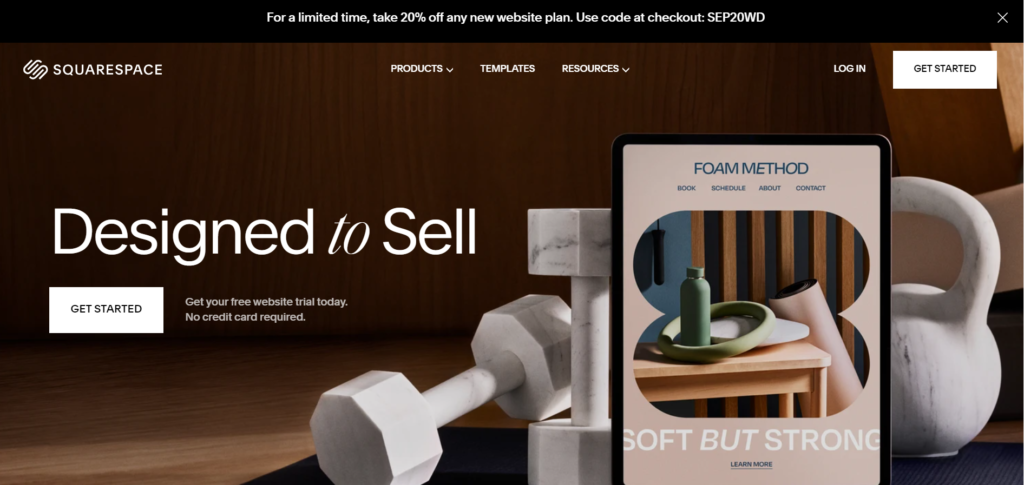
Pros of Squarespace:
• Stunning Templates: Squarespace is known for the visually stunning templates of stores, perfect for businesses that have to deal much with aesthetics.
• All in one: everything from SEO tools and blogging to analytics, Squarespace has a whole lot of fully integrated features without necessarily requiring third-party apps.
• Easy to use: Squarespace is pretty beginner-friendly; anyone can build a really professional-looking website using this tool with hardly any effort.
Cons of Squarespace:
• Lacking in eCommerce features: while great for small stores, its feature set for this purpose is the complete opposite of what Shopify or BigCommerce allows.
• Fewer Payment Gateways: Squarespace supports very few payment gateways, namely Stripe and PayPal, which for some can be quite limiting.
• Scaling Issues: Similar to Wix, Squarespace is not ideal for larger businesses or those wanting high-degree eCommerce functions.
5. Magento
Magento is an open-source platform just like WooCommerce but with way more robust features; it’s meant for large businesses with significant technical resources.
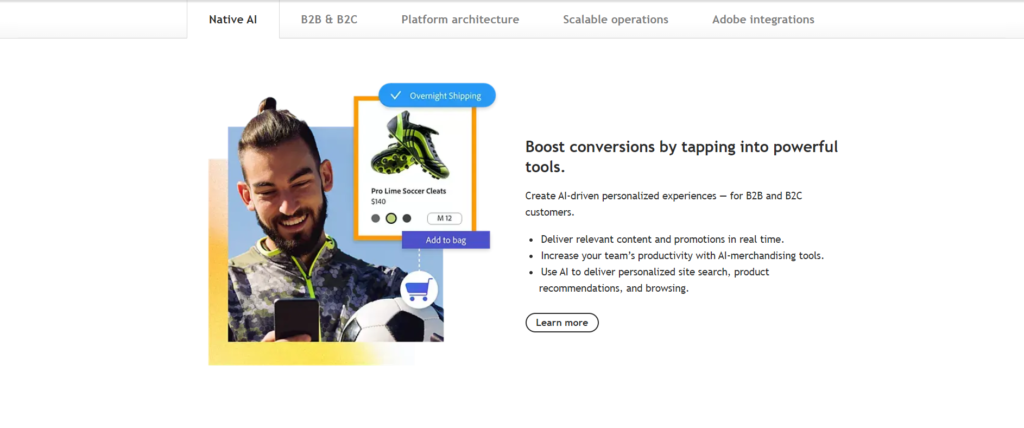
Pros of Magento:
• Very Customizable: Magento gives full control over every single feature and all the design elements of your store.
• Rich Features: It has advanced e-commerce features that suit large enterprises.
• Scalability: Magento can handle massive volumes of traffic and sales, making it appropriate for fast-growing and big businesses.
Cons of Magento:
• Complexity: Magento requires the need for developers or advanced technical knowledge to run.
• High Costs: Although the community version is free, hosting, security, and additional features make Magento pretty expensive.
• Time-Consuming: It is going to take significant time to set up and maintain a Magento store compared with other platforms.
Why Choose These Alternatives Over Shopify?
Although Shopify is one of the leading eCommerce platforms, each alternative comes with certain unique benefits that may better suit your business. So here is why you might prefer using one of these alternatives over Shopify:
BigCommerce: It serves businesses that need more out-of-the-box built-in functionalities with little reliance on third-party apps. It saves money by not charging transaction fees.
WooCommerce: Ideal for WordPress users looking for full control over customizability, scalability, and SEO-all at lower costs on initial setup.
Wix eCommerce: Suitable for small businesses or novices who would require all-in-one and user-friendly, with decent pricing.
Squarespace: For creative professionals and small stores to get this template, beautiful and visually appealing, with an easy setup process.
Magento: This is for large businesses that are tech-savvy enough to squeeze every ounce of advanced customization out of the system, while also scaling it for enterprise-level growth.
Conclusion
While Shopify can tend to be one of the best solutions for a huge number of businesses, it might not completely fit each and every business case. BigCommerce is ideal if you need more features out of the box, WooCommerce is perfect for flexibility if you’re on WordPress, Wix is great if you’re a small store that wants simplicity, Squarespace fits you if design is your number one priority, and Magento will work if you are an enterprise with technical resources.
It all depends on the right eCommerce platform that caters to your specific needs and budgets for long-term goals. Thus, weighing the pros and cons of each of the platforms will help you in choosing an appropriate platform that best fits your business strategy.
About Us
Bloom Agency is a top-end digital marketing firm famed for sophistication in SEO, web development, and holistic digital strategies. We are always looking to fuel business growth through increased online visibility and bringing relevant traffic. Rely on Bloom Agency to strengthen your brand and succeed with success in the digital landscape.
We provide services like:








Rahul M.
B2B Service Provider